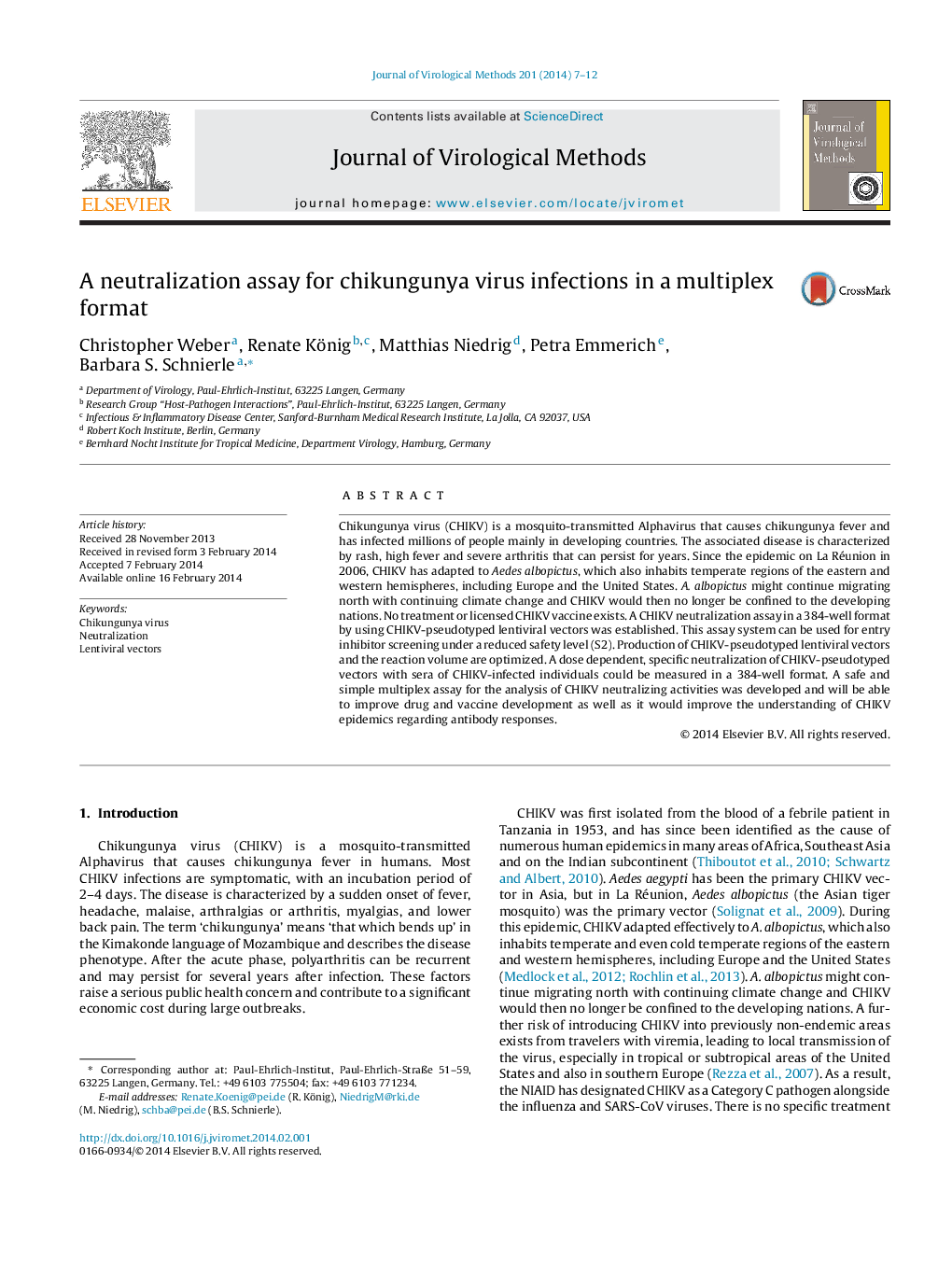| Article ID | Journal | Published Year | Pages | File Type |
|---|---|---|---|---|
| 6133761 | Journal of Virological Methods | 2014 | 6 Pages |
Abstract
Chikungunya virus (CHIKV) is a mosquito-transmitted Alphavirus that causes chikungunya fever and has infected millions of people mainly in developing countries. The associated disease is characterized by rash, high fever and severe arthritis that can persist for years. Since the epidemic on La Réunion in 2006, CHIKV has adapted to Aedes albopictus, which also inhabits temperate regions of the eastern and western hemispheres, including Europe and the United States. A. albopictus might continue migrating north with continuing climate change and CHIKV would then no longer be confined to the developing nations. No treatment or licensed CHIKV vaccine exists. A CHIKV neutralization assay in a 384-well format by using CHIKV-pseudotyped lentiviral vectors was established. This assay system can be used for entry inhibitor screening under a reduced safety level (S2). Production of CHIKV-pseudotyped lentiviral vectors and the reaction volume are optimized. A dose dependent, specific neutralization of CHIKV-pseudotyped vectors with sera of CHIKV-infected individuals could be measured in a 384-well format. A safe and simple multiplex assay for the analysis of CHIKV neutralizing activities was developed and will be able to improve drug and vaccine development as well as it would improve the understanding of CHIKV epidemics regarding antibody responses.
Related Topics
Life Sciences
Immunology and Microbiology
Virology
Authors
Christopher Weber, Renate König, Matthias Niedrig, Petra Emmerich, Barbara S. Schnierle,
